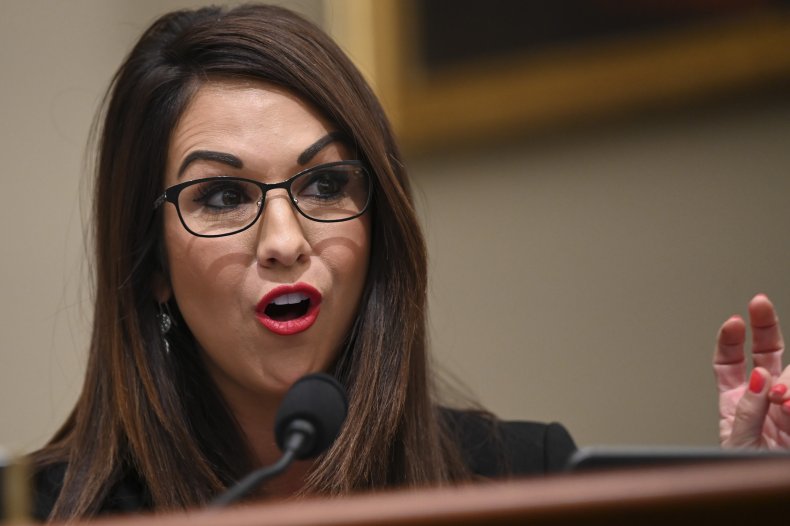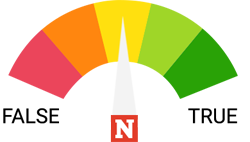The closure of the Abbott Nutrition facility in Michigan has had a devastating impact on the supply of baby formula across the U.S.
The shortage, exacerbated by product recalls and supply chain issues, has led to hospitalizations in Atlanta and Memphis.
As the situation remains dire for many families across the country, Colorado Republican Rep. Lauren Boebert has blamed the U.S. Food and Drug Administration (FDA) for closing down the Michigan plant.

The Claim
On May 19, 2022, Boebert alleged the FDA was responsible for the baby formula shortage because it "unfairly closed" the Abbott Nutrition plant in Sturgis, Michigan.
Boebert claimed the closure of the plant was "based on charges proven untrue."
The Facts
The closure of the Abbott facility in Sturgis, Michigan, was one of the most significant factors precipitating in the shortages of baby formula supply in the U.S.
The factory closed in February after the FDA issued a warning to consumers not to use certain powdered infant formula produced at the Michigan plant.
Similac, Alimentum and EleCare powdered formulas were voluntarily recalled which, according to the FDA, are brands owned and manufactured by Abbott Nutrition.
Reports that cronobacter sakazakii (said to have caused several baby illnesses and deaths) may have been linked to Abbott products sparked the recent FDA investigation.
An inspection, conducted in the period between January 31 and March 18, 2022, confirmed samples of cronobacter "in medium and high care areas of powdered infant formula production."
In a statement published on May 11, 2022, Abbott said that "after a thorough review of all available data" there was no link between its formulas and the illnesses.
However, in an op-ed with The Washington Post, Abbott Nutrition CEO acknowledged an FDA investigation "did discover a bacteria in our plant that we will not tolerate."
The company said the cronobacter sakazakii was found in environmental testing during the investigation, but was in "non-product contact areas of the facility and has not been linked to any known infant illness."
A statement on the FDA's website on May 16, 2022, says Abbott Nutrition closed its plant voluntarily and initiated a voluntary recall of some of its products after concerns were raised earlier this year.
The FDA stated: "While the agency's inspection was ongoing, Abbott Nutrition voluntarily recalled certain powdered infant formula products and voluntarily shut down its facility to implement corrective actions that address issues raised by the FDA."
Subsequently, Abbott entered into a "consent decree" with the FDA on a series of steps necessary to reopen the plant.
The regulator said Abbott had agreed to take corrective actions following an inspection of its facilities, which would "ultimately result in an increase of infant formula products, while ensuring that the company undertakes certain actions that would ensure safe powdered infant formula is produced at the facility."
It added: "When the company decides to restart production at this facility, it must conform with the provisions of the proposed consent decree and meet FDA food safety standards.
"If contamination is identified, the company must notify the FDA, identify the source of the problem and conduct a root-cause investigation before resuming production."

However, while the FDA has said the closure was "voluntary," the meaning behind that apparent gesture of goodwill is less clear-cut.
Thomas E. Colonna, Director of Regulatory Science, Food Safety Regulation, and Biotechnology Enterprise and Entrepreneurship Programs at Johns Hopkins University, told Newsweek that the majority of the language in the FDA's guidance on product recalls "utilizes the encouragement of 'voluntary' actions."
"While technically and legally 'voluntary' there are many incentives to act in accordance with FDA wishes and desires on a voluntary basis," Colonna said.
"Big companies who have many product lines regulated by the FDA do not wish to antagonize people at the FDA—they have financial incentives to act as 'good corporate citizens' in complying not only to the letter of the law (that which is mandatory) but also the spirit of the law (that which is voluntary) and garnering 'goodwill' from the people who work at the FDA.
"These big companies have to work with the FDA on a continuing basis on many different product lines, so they desire to have a good working relationship with the folks at FDA."
To this end, a spokesman for Boebert cited a New York Times report, which claimed the closure was made between the FDA and Abbott.
Newsweek also spoke to Fran Miller, Professor of Law at Boston University School of Law, who argued that the infant death reports and an FDA warning would have left Abbott few other options other than to close its plant.
"The FDA did not 'close' the Abbott facility, it didn't have to; it simply issued a warning letter to consumers not to buy infant formula manufactured there after two babies had died, and others had sickened, after consuming it," Miller said.
"With that kind of high-profile PR shot across the bow, indicating that the facility was in the agency's cross-hairs however belatedly, the only rational course for the company was to close the plant voluntarily until it had dealt with the perceived problem.
"Liability concerns alone would prompt such a reactive closure."
Abbott has said that once it receives FDA approval, it could restart the Michigan site within two weeks. However, it added that from the reset "it would take six to eight weeks before product is available on shelves."
Abbott Nutrition made no additional comment. The FDA provided previously published press releases in response to a Newsweek enquiry.
The Ruling

Half True.
The FDA has stated that the closure was voluntary, which is technically true. However, as supported by experts, the use of the word "voluntary" masks the incentives and pressures of working cooperatively with the regulator. In the wake of infant death reports, and the warning issued by the FDA, Abbott arguably would have had little choice other than to close its facility. Abbott has said that "after a thorough review of all available data" there was no link between its formulas and the illnesses, though it did discover some contaminants at its facility.
FACT CHECK BY NEWSWEEK
"Shut" - Google News
May 26, 2022 at 05:33PM
https://ift.tt/p0ZM41G
Fact Check: Did FDA Shut Down Abbott's Baby Formula Factory? - Newsweek
"Shut" - Google News
https://ift.tt/xu6GlLq
https://ift.tt/ZEsS1OH
Bagikan Berita Ini














0 Response to "Fact Check: Did FDA Shut Down Abbott's Baby Formula Factory? - Newsweek"
Post a Comment